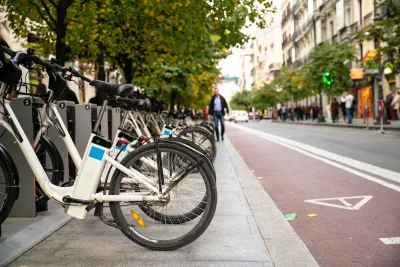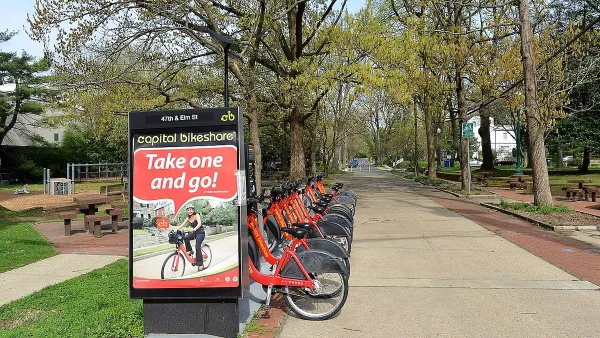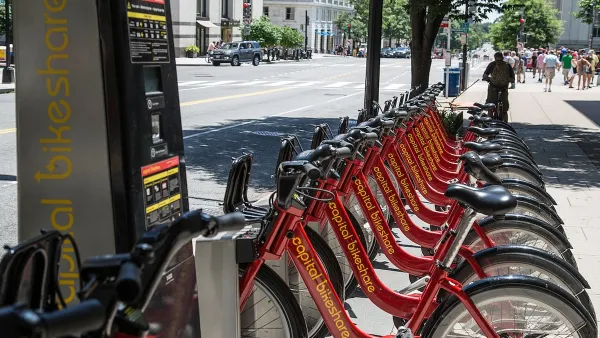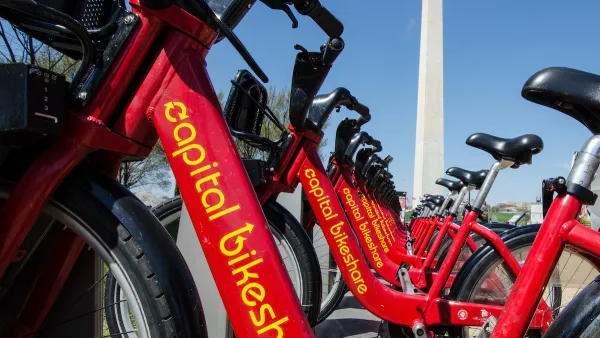Research reveals that shared bikes and scooters are often a crucial lifeline for low-income workers, signaling a need to include micromobility in the larger public transit conversation.

A study of survey data from the United States, Australia, and New Zealand sheds light on how low-income people use shared micromobility services, indicating an opportunity for cities to improve transportation services for the workers who need them most.
Kea Wilson outlines the findings in Streetsblog USA, writing, “Participants in the Lime Access program, which grants discounts of around ‘70 or 80 percent’ to riders who qualify, were significantly more likely to list essential reasons like ‘shopping’ for groceries (35 percent) and ‘commuting’ (31 percent) than non-Access riders, 11 and 21 percent of whom rode to complete errands or go to work, respectively.”
The study found that lower-income users were very unlikely to use shared mobility for non-essential reasons. “And a whopping 44 percent of their trips connected to a traditional transit ride, compared to just 23 percent of people who paid full price.”
As Wilson notes, “Perhaps the most surprising findings, though, were riders' qualitative responses about what micromobility meant to them, and how their lives were made better by having access to affordable ways to get around without a car.” According to Calvin Thigpen, director of policy research for Lime and co-author of the report, “People are using this to get around for pivotal trips; they are heavy, often daily users.”
However, most U.S. bike share systems are not subsidized by public funding, meaning any equity programs cut into the operators’ profit margins. Planetizen recently covered Houston BCycle’s decision to shut down that program due to funding problems. For Thigpen and other advocates, this signals a need to support and fund shared mobility programs as an integral component of an accessible, comprehensive public transit system.
FULL STORY: Study: How Low-Income People Really Use Micromobility

Analysis: Cybertruck Fatality Rate Far Exceeds That of Ford Pinto
The Tesla Cybertruck was recalled seven times last year.

National Parks Layoffs Will Cause Communities to Lose Billions
Thousands of essential park workers were laid off this week, just before the busy spring break season.

Retro-silient?: America’s First “Eco-burb,” The Woodlands Turns 50
A master-planned community north of Houston offers lessons on green infrastructure and resilient design, but falls short of its founder’s lofty affordability and walkability goals.

Test News Post 1
This is a summary

Analysis: Cybertruck Fatality Rate Far Exceeds That of Ford Pinto
The Tesla Cybertruck was recalled seven times last year.

Test News Headline 46
Test for the image on the front page.
Urban Design for Planners 1: Software Tools
This six-course series explores essential urban design concepts using open source software and equips planners with the tools they need to participate fully in the urban design process.
Planning for Universal Design
Learn the tools for implementing Universal Design in planning regulations.
EMC Planning Group, Inc.
Planetizen
Planetizen
Mpact (formerly Rail~Volution)
Great Falls Development Authority, Inc.
HUDs Office of Policy Development and Research
NYU Wagner Graduate School of Public Service




























